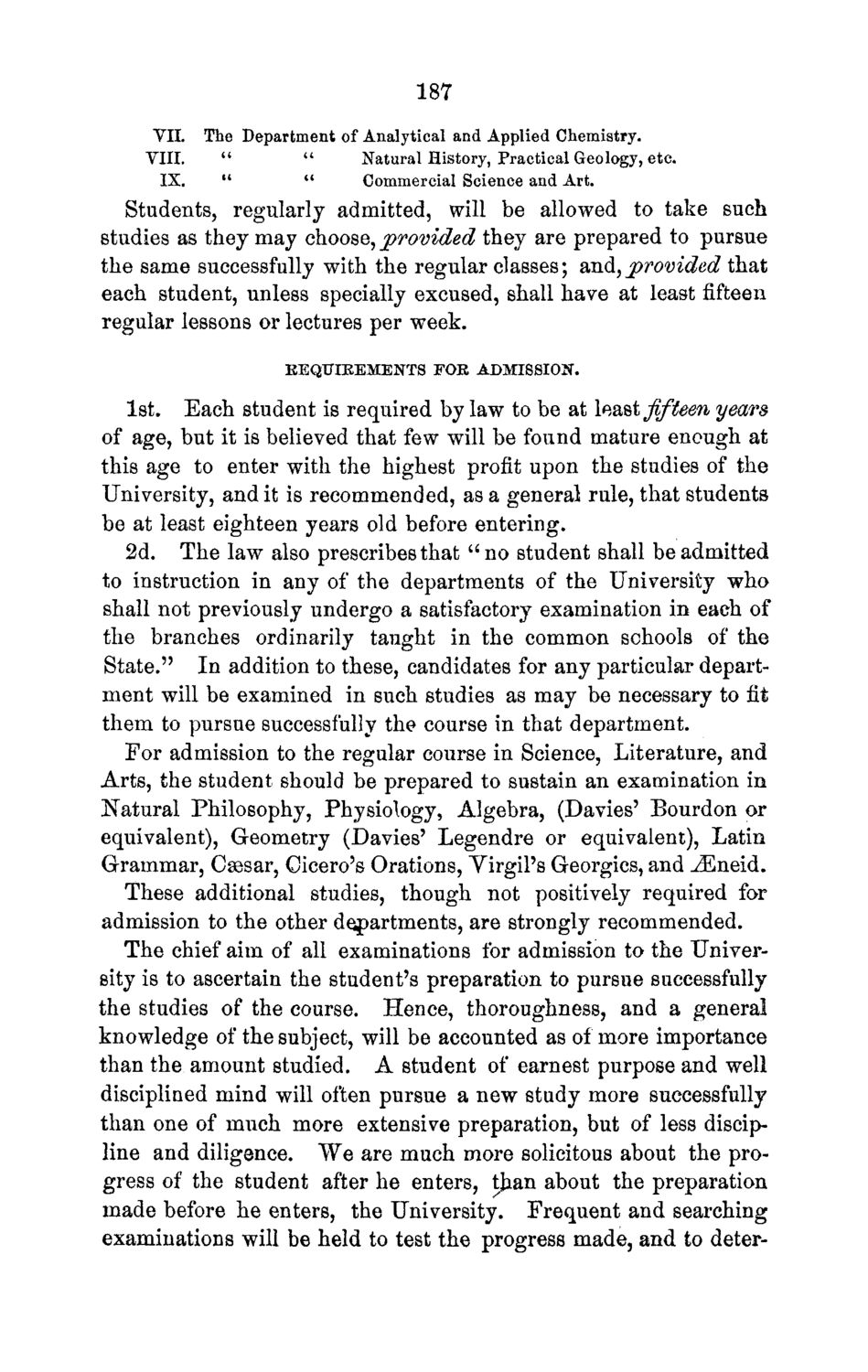| |
| |
Caption: Board of Trustees Minutes - 1868
This is a reduced-resolution page image for fast online browsing.

EXTRACTED TEXT FROM PAGE:
187 VII. VIII. IX. The Department of Analytical and Applied Chemistry. u " Natural History, Practical Geology, etc. u •* Commercial Science and Art. Students, regularly admitted, will be allowed to take such studies as they may choose, provided they are prepared to pursue the same successfully with the regular classes; and,provided that each student, unless specially excused, shall have at least fifteen regular lessons or lectures per week. REQUIREMENTS FOR ADMISSION. 1st. Each student is required by law to be at least fifteen years of age, but it is believed that few will be found mature enough at this age to enter with the highest profit upon the studies of the University, and it is recommended, as a general rule, that students be at least eighteen years old before entering. 2d. The law also prescribes that " n o student shall be admitted to instruction in any of the departments of the University who shall not previously undergo a satisfactory examination in eaeh of the branches ordinarily taught in the common schools of the State." In addition to these, candidates for any particular department will be examined in such studies as may be necessary to fit them to pursue successfully the course in that department. For admission to the regular course in Science, Literature, and Arts, the student should be prepared to sustain an examination in Natural Philosophy, Physiology, Algebra, (Davies' Bourdon or equivalent), Geometry (Davies' Legendre or equivalent), Latin Grammar, Caesar, Cicero's Orations, Virgil's Georgics, and ^Eneid. These additional studies, though not positively required for admission to the other departments, are strongly recommended. The chief aim of all examinations for admission to the University is to ascertain the student's preparation to pursue successfully the studies of the course. Hence, thoroughness, and a general knowledge of the subject, will be accounted as of more importance than the amount studied. A student of earnest purpose and well discipliued mind will often pursue a new study more successfully than one of much more extensive preparation, but of less discipline and diligence. We are much more solicitous about the progress of the student after he enters, tjian about the preparation made before he enters, the University. Frequent and searching examinations will be held to test the progress made, and to deter-
| |